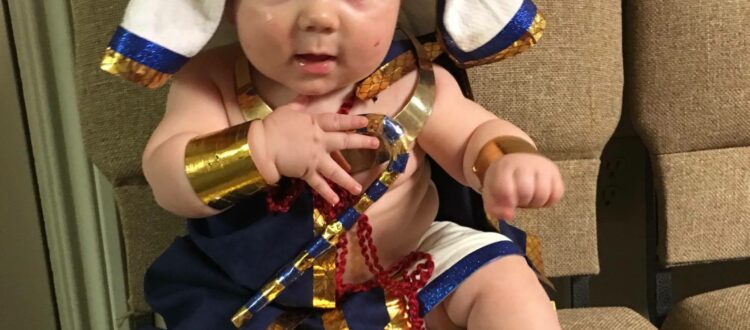Your Personal Pharaoh
Your Personal Pharaoh
In this week’s Torah portion we have the first seven of the ten plagues that were inflicted upon Pharaoh and Egypt and that got the redemption process going. A question about these plagues and how God administered them concerns the justice in God’s removal of Pharaoh’s free choice when He hardened Pharaoh’s heart. How can you blame Pharaoh for not abiding by Moshe’s request to free the Israelite slaves if God had repeatedly forced Pharaoh to not allow their freedom?
The commentaries throughout the ages have grappled with this issue and present many perspectives on it. A close reading of the text reveals that God is not mentioned as the subject in the verses that describe the first five plagues. It doesn’t explicitly state that, “God hardened Pharaoh’s heart” but rather, “He hardened his heart”, the ambiguity lending some to believe that it was Pharaoh who hardened his own heart. This is in contrast to the latter plagues where the Torah clearly states God as the subject and the one who is hardening Pharaoh’s heart. Pharaoh’s ability to choose was removed only later on in the latter stages.
But a completely different and opposite viewpoint is that, in actuality, God kept Pharaoh’s freewill alive, vibrant and strong. Logically and practically, a leader such as Pharaoh who had experienced so many open and obvious miracles should have let the Jewish people go free. The events were so clearly detrimental to the king, his land and his economy, that it should have been enough for Pharaoh to conclude that he must cut his losses and rid himself of the Israelites.
Instead, God arranged that Pharaoh could make a fresh and new choice after each plague, as if each plague were the first. Sort of like losing his memory about the previous ones. God didn’t remove his free choice, but actually gave it back to him – fresh and clean, without the memory, history and feelings of past repercussions. It was Groundhog Day all over again.
It is an interesting way of looking at this issue since it very much mirrors the behavior of the little Pharaohs that live in all of us. Aren’t we just like Pharaoh when we stubbornly stick to losing policies and behavior? And indeed Jewish tradition even compares Pharaoh to our personal Yetzer Hara or Evil Inclination – that tiny Pharaoh that abides in all of us.
Let’s face it – every person has his or her weaknesses and character flaws. King Solomon writes that “there is no such thing as a completely righteous person in the land” and that we all have our challenges in life in some way or another. We each have our things that drag us down and, just like Pharaoh, we stubbornly stick with those losing propositions. Every time we think the outcome will be different only to be once again disappointed that it isn’t. Whether it’s gambling, food, alcohol, procrastination – the pattern is always the same. A promise of something that doesn’t deliver.
And just like Pharaoh, whenever the opportunity arises to leave, we don’t but get sucked right back into it like Charlie Brown convincing himself that this time, just this once, Lucy will not pull away the football when he goes to kick it. And just like Charlie Brown, we always end up flat on our back – defeated and hurt at our insanity.
It is reputed that Albert Einstein said that the definition of insanity is doing the same thing over and over again and expecting different results. Similarly the Talmud says that a person only sins when a ruach shtus, literally a spirit of stupidity or insanity comes over us.
So what’s the solution? How do we get out of this losing cycle of self-destruction? Going back to our parsha, the only way out of this Pharaoh-like behavior is to be like Moshe, Pharaoh’s opposite and foil. And what is the main character trait that that the Torah later tells us about Moshe, the anti-Pharaoh? As I wrote last week, it is Humility. Not being wedded to any particular personal gain or agenda but only to what is Godly, good and true.
The addiction to power with Assad/Pharaoh-type zeal will always result in its natural aftermath of destruction and death. Similarly any addiction to personal desires will pave the way to self-destruction. The only way to overcome either is with a great sense of humility and a realization that it is not about me and my immediate desires, wants or needs, nor is it about a false belief in the centrality and all-importance of me to any nation, cause or group. Pharaoh thought it was all about him as does Assad of Syria, Erdogan of Turkey, Maduro of Venezuela or any number of ego-centric leaders who will ruin their nation before they will step down. Moshe knew that it had nothing to do with him but it was all about the good and welfare of God’s people and their future.
Pharaoh versus Moshe – those are the choices in our lives. Ego versus altruism. The key to fulfillment in life is to be able to channel those new and fresh feelings of Pharaoh-like destructive behavior into the proper direction and thereby enjoy the meaningful pleasures of life with that selfsame sense of youth and vigor. Pharaoh’s choices led to the downfall and death of many. Moshe’s choices led to redemption, life and eternity. We all have the choice in front of us – choose Moshe.
I used to rule the world
Seas would rise when I gave the word
Now in the morning I sleep alone
Sweep the streets I used to own…
I hear Jerusalem bells are ringing
-Coldplay

